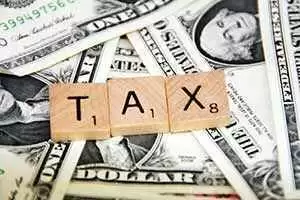Celiac.com 10/27/2004 - For at least the last 15 years I have gone to several doctors with a host of various gastrointestinal disorders. The most common diagnosis I received was Irritable Bowel Syndrome. Finally, in May of 2003, I found a doctor who was thorough enough to check for Celiac Disease. I have been on the gluten-free diet ever since and feel wonderful!
When first diagnosed with Celiac Disease, I suppose I was like most people—overwhelmed by the magnitude of the lifestyle change associated with the gluten-free diet. Once reality set in and I began to accept and deal with this new diet, I experienced another overwhelming feeling—the high cost of gluten-free foods! While I was not on a tight budget, the idea of spending four times as much for a loaf of bread that was only half the size was daunting to say the least. I immediately began searching for ways to diminish this extra expense.
Celiac.com Sponsor (A12):
My research took me to the Internet, where I discovered that according to several IRS rulings (Revenue Ruling 55-261; Revenue Ruling 76-80, 67 TC 481; Cohen 38 TC 37; Van Kalb TC MEMO 1978 366; Flemming TC MEMO 1980 583), the cost difference between gluten containing food products and specialty gluten-free alternatives is tax deductible for Celiac patients. However, it didnt turn out to be that simple.
Further research revealed that only the portion which exceeds a 7.5% threshold of adjusted gross income for all medical expenses combined would be deductible. In English, that meant that if I had an income of $50,000, I would only be able to deduct my extra expense of gluten-free foods (and any other legally deductible medical expense) that exceeded $3,750 (7.5% of $50,000)! Well, gluten-free foods are not that expensive!
Knowing I would never reach that deductibility threshold, my search continued. Suddenly, a rare epiphany befell me. Since the IRS had ruled specialty foods that are medically necessary to treat a condition are deductible, it may follow that these same expenses may be reimbursable through my employers Flexible Spending Account program.
Basically, the Flexible Spending Account is a plan that allows you, the employee, to set up a separate savings account, usually administered by a third party. You decide at the beginning of the year how much to contribute to this account. The contributions are deducted from your payroll before tax (meaning you are not charged income tax on the portion of your income you put into the account). As you have out of pocket medical expenses, you file a claim from the Flexible Spending Account administrator for reimbursement of those expenses. Once the account is emptied, no further reimbursements are possible for that year. One caveat with these plans is that they are "use it or lose it," which means that if you do not have sufficient medical expenses equal to the amount contributed you will forfeit any unclaimed balance. Your human resources department should be able to tell you if your company offers a Flexible Spending Account.
In my case, I first called the human resources department at my place of employment to find out if indeed my rationale was valid. The response was "I dont know, but I doubt it"! Never one to take no for an answer (especially when preceded by "I dont know"!), I pressed on. A phone call to the Flexible Spending Account administration company yielded the answer I had hoped for—YES!
Fortunately, I happened to connect with a customer service representative who was extremely thorough and diligent. She had to put me on hold several times, but she finally found not only the answer I was looking for, but also the proper procedure for filing a claim. She sent me a worksheet that I now use to file any claim for gluten-free foods. The sheet has a place to list the food item, cost of the gluten-free variety, cost of the gluten-containing variety, and the price difference. I made several copies of the worksheet, so now whenever I file a claim, I just fill out a new sheet. The receipts for the food items I am requesting reimbursement for must be included each time with the worksheet. With my first claim, I also had to provide a letter from my doctor clearly stating I was diagnosed with celiac disease and that I must be on a gluten-free diet. They keep this letter on file, so I do not have to send it each time.
Generally speaking, any medical expense the IRS considers deductible (on Schedule A of your 1040 form) is reimbursable, however, employers are not obligated to follow those guidelines. They are not able to add other expenses that are not deductible, but they can delete certain ones (like gluten-free foods) if they choose. So it behooves you to check with your Flexible Spending Account administrator to find out what your plan covers and the proper procedure for reimbursement. It may be necessary to ask to speak to a supervisor, since not every customer service representative will be as helpful as the one I had. You may wish to cite the IRS rulings I listed earlier to convince them to accept this as a reimbursable item. This can also be helpful to convince them to reimburse gluten-free food items if they do not currently do so.
While it is still your money that is paying for the entire cost of gluten-free food, using the Flexible Spending Account to switch that money to the tax free variety can add up to significant savings. Depending on the amount of gluten-free food you are buying, and your tax bracket, it can easily be over $100 per year in tax savings!
This article originally appeared in the book A Personal Touch On...™ Celiac Disease. ©A Personal Touch Publishing, LLC.







Recommended Comments